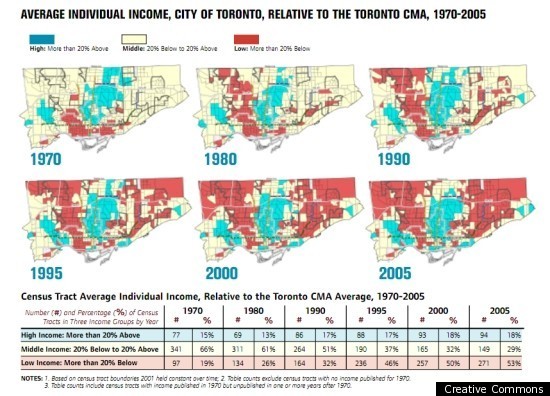Here's a good one in The Star today. I say that with a hint of sarcasm.
http://www.thestar.com/business/art...ushion-home-price-decline-cibc-economist-says
Fears of steep home price decline ‘much ado about nothing,’ CIBC says
Published on Thursday August 23, 2012
LuAnn LaSalle
The Canadian Press
A widely anticipated downturn in the housing market may not be as bad as feared because
the important 25-34 age group will continue to buy houses — some with help from their well-off parents, says a senior economist at CIBC World Markets.
The analysis takes aim at a theory that population growth won’t be strong enough to sustain demand, putting downward pressure on housing prices that have risen dramatically during a years-long period of relatively low interest rates.
“This demographically driven fear is much ado about nothing,†Benjamin Tal, deputy chief economist at CIBC World Markets, said Thursday.
Tal said the group aged between 25 and 34 — the age group that makes up the vast majority of first-time buyers — will continue to grow.
Young people may have to postpone buying a house for a couple of years due to their student debt level,
but their parents can help them out, Tal said from Toronto.
“
Many of those young people — they’re lucky — they have wealthy parents,†Tal said in an interview after the report was published.
“This is actually the first generation that the parents are better off than the kids and
those parents will write a nice cheque,†he said. “
The student debt level is not significant enough to really kill the housing market.â€
This group of young people also have
the option of living with their parents while paying down their debt and saving for a down payment, he said.
Tal said
once they move out, the younger generation will be “extremely dynamic†in terms of self-employment and being employable, which will help them buy houses.
“They will work and they will make money,†Tal said.
Tal notes there will be fewer Canadians under the age of 25 and between the ages of 45 and 54, but those groups account for a small portion of home buyers.
He expects a “correction†— or lowering — in housing prices will not be seen as “up in the sky†and should follow inflation.
Tal also added that growth in the housing market could be even stronger due to immigration.
Overall, the CIBC economist says the next decade will see an annual population growth of 0.9 per cent, in line with growth seen in the past decade — a period of strong demand for residential real-estate and a sharp jump in housing prices.
“Itâ™s not about everything is rosy, it’s about what is after the storm clouds.â€





